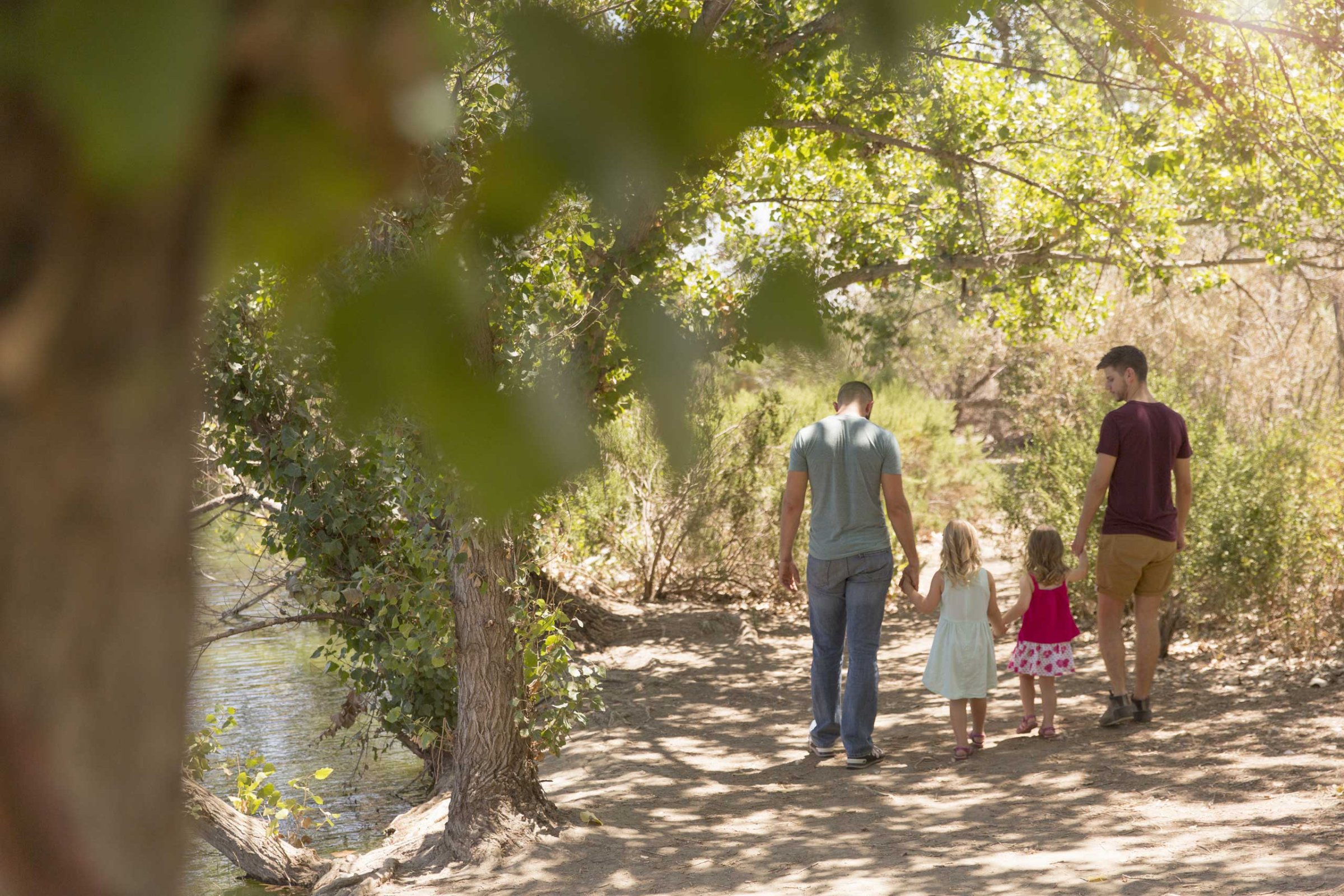
Like a majority of children currently raised by same-sex couples, I was born to a heterosexual couple who divorced. The pain and anger I felt because of the absence of my father in my home was something people understood, and it was something I was able to share with others. On the other hand, even though I was taught to be comfortable with myself, I understood and internalized the sense that something was wrong with my new family after my mom began a relationship with her first long-term girlfriend — who lived with us and helped raise me during my formative years, eventually earning her the title “other mother” — and I was ashamed and silent about being raised by two women.
I did not talk about it with my closest friends, with whom I shared everything from my fears and anger to my crushes on girls. Even though these friends were in my home on a weekly basis, it was simply not discussed. Not by me. Not by them. Never.
This shame was so great that I broke my silence and “came out” about my family in the oddest way. When a girl I loved and dated my senior year of high school decided to end our romantic relationship, I was so heartbroken that I suddenly began talking about my family to her in the midst of our breakup. Somehow, the pain of the breakup and the shame I had been holding inside for years became one, and they flowed out of me together. Still, I did not begin to talk to others about it until nearly a year after that breakthrough, when I participated in a panel in a college women’s studies course and publicly shared my story. Later, I wrote about my family in an autobiography course and began sharing my writing with close friends. It was truly liberating to be able to speak about this part of my life after years of avoidance and silence.
Opponents of marriage equality continue to focus on the alleged harms children of same-sex couples will suffer if same-sex marriage is legalized, thus attempting to make the issue all about the children. This strategy makes sense since nearly every other argument against marriage equality has been rejected.
Indeed, there can be no legitimate governmental interest in discriminating against private relationships based on the sex or sexuality of those in the relationship. So while this civil rights struggle is about recognizing the equal humanity of gays and lesbians and their right to have their relationships treated equally in the law, the truth is that it is also very much about the children.
And the research on children raised by same-sex couples concludes that same-sex parents are no disadvantage to them; there is no basis for believing that kids develop better in a household led by a man and a woman. In fact, studies have shown that while the emotional and mental health of children raised by heterosexual couples is essentially the same as those raised by gay parents, children of same-sex couples are more open-minded and empathetic, more self-aware, more adept at communicating their feelings. Because they are typically not subjected to rigid gender roles, they are freer to pursue a wide range of interests.
The keys to a healthy childhood are stability and love. Having two mothers during my formative years saved me because it gave me the stability, support and love I needed. The shame I felt and the stigma I experienced was unnecessary. Children should not be stigmatized because their families are different from the “norm,” whether they are raised in an interracial family, in a single-parent household or by a same-sex couple. Yet when the law does not recognize your family, stigma and fear are perpetuated and reinforced.
Now, the Supreme Court has a chance to finish the job once and for all and decide that the 14th Amendment requires every state in this great country to license a marriage between two people of the same sex. I make this appeal to the Justices, and particularly to Justice Anthony Kennedy, who two years ago in the Proposition 8 case recognized that “It’s the voice of those children” of same-sex couples that should be heard. As one of those children, I say, Do it for us.
Beyond the significant legal rights that will be afforded to children of same-sex couples who marry, including inheritance, adoption, hospital visitation rights, and other rights that ensure stability for the children, my appeal to the Justices is most concerned with the human element of the matter and the real-life effects of the ruling.
As Justice Scalia has remarked, the law reflects our society’s moral judgments. Our laws have reflected a moral judgment that same-sex relationships are lesser and not worthy of recognition by the government. In addition to the harm caused to those in same-sex relationships, children raised by gays and lesbians have suffered because of this moral judgment. It’s time for the highest court in our land to reflect a new moral judgment that same-sex couples should no longer be stigmatized, that their relationships should be recognized by the law and that their children will be better off for it.
More Must-Reads from TIME
- How Donald Trump Won
- The Best Inventions of 2024
- Why Sleep Is the Key to Living Longer
- Robert Zemeckis Just Wants to Move You
- How to Break 8 Toxic Communication Habits
- Nicola Coughlan Bet on Herself—And Won
- Why Vinegar Is So Good for You
- Meet TIME's Newest Class of Next Generation Leaders
Contact us at letters@time.com